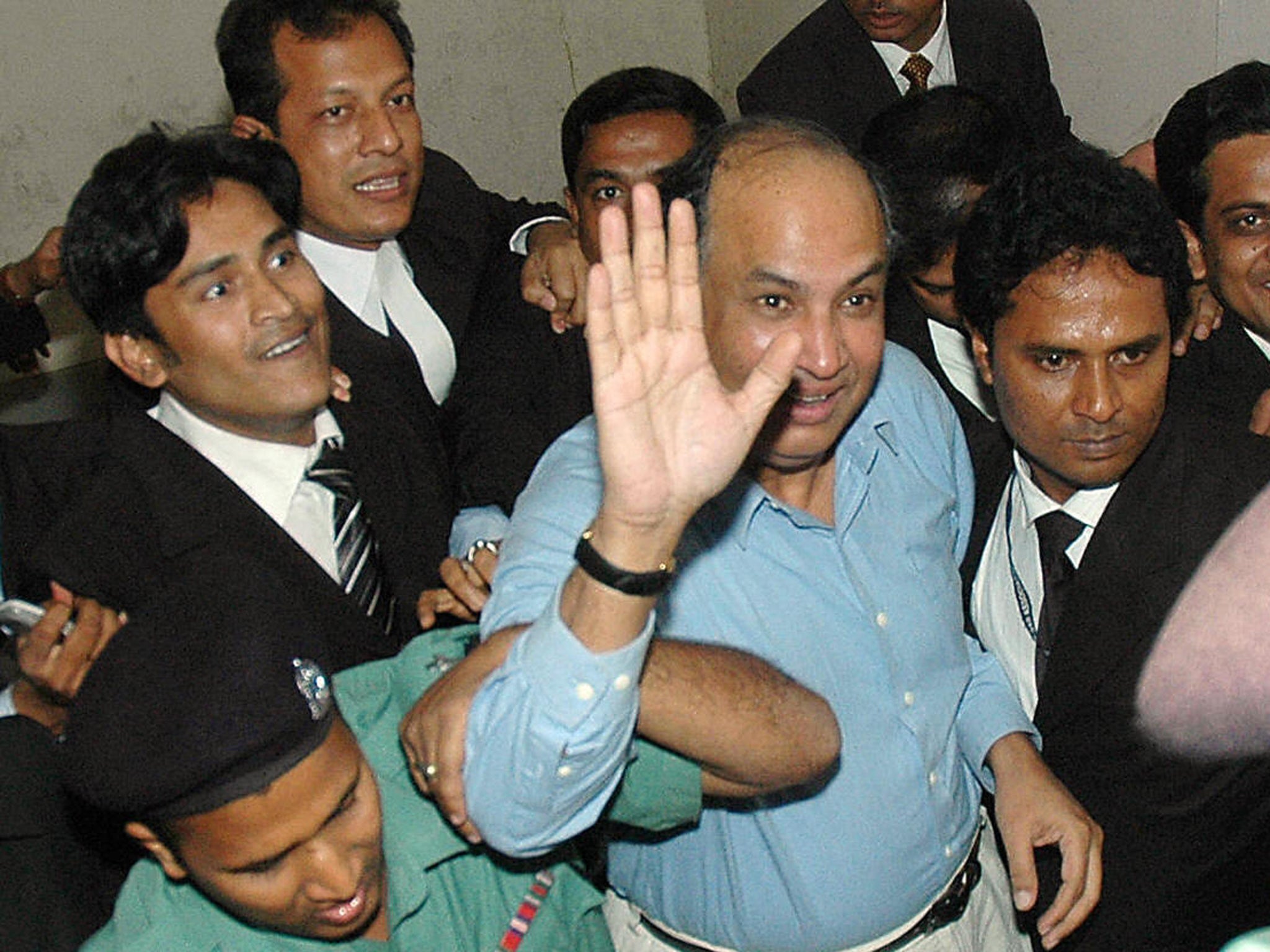Bangladesh MP Salauddin Quader Chowdhury sentenced to death over war crimes
64-year-old defendant found guilty of torture, rape and genocide during the country’s struggle for independence

Your support helps us to tell the story
From reproductive rights to climate change to Big Tech, The Independent is on the ground when the story is developing. Whether it's investigating the financials of Elon Musk's pro-Trump PAC or producing our latest documentary, 'The A Word', which shines a light on the American women fighting for reproductive rights, we know how important it is to parse out the facts from the messaging.
At such a critical moment in US history, we need reporters on the ground. Your donation allows us to keep sending journalists to speak to both sides of the story.
The Independent is trusted by Americans across the entire political spectrum. And unlike many other quality news outlets, we choose not to lock Americans out of our reporting and analysis with paywalls. We believe quality journalism should be available to everyone, paid for by those who can afford it.
Your support makes all the difference.A court in Bangladesh has sentenced to death a senior opposition politician who has been convicted of war crimes carried out during the country’s bloody struggle for independence. The decision was met by violent protesters by some of his supporters.
Security had been tightened in Dhaka and other cities in the country ahead of the appearance in court by Salauddin Quader Chowdhury, a member of parliament and a senior member of the main opposition Bangladesh Nationalist Party (BNP). The decision was the seventh such ruling by the court, which was set up by the ruling Awami League-led government.
The 64-year-old defendant was found guilty of torture, rape and genocide. He had been accused of direct involvement in the killing of anywhere up to 200 civilians and collaborating with Pakistan’s army to kill and torture unarmed people.
On Tuesday night it was reported that supporters of Chowdhury had attacked government activists. A number of vehicles were set on fire in the city of Chittagong. The BNP has called for a shutdown in Chittagong on Wednesday.
The crimes for which Chowdhury had been accused took place in 1971 as Bengali nationalists in what was then East Pakistan struggled for the results of a democratic election to be recognised. The authorities in West Pakistan opposed the move and troops launched a brutal operation to put down the democratic movement. Anywhere between 300,000 to 3m people were killed.
The special court was established in 2010 by the government of Prime Minister Sheikh Hasina. Opponents claim it is politically motivated and that it does not meet international standards of justice. Others say the hearings are an essential way to achieve justice for the dark deeds that took place four decades ago.
Chowdhury was charged 16 months ago with 23 specific charges of crimes against humanity committed along with Pakistani troops during the liberation war. Chowdhury, the son of former acting president, denied all of them. After Tuesday’s verdict, his wife told reporters they would appeal to the country’s Supreme Court. Farhat Quader Chowdhury called the decision a “farce”.
According to the Associated Press, Attorney General Mahbubey Alam said the tribunal convicted Chowdhury on nine of the 23 charges. “I think this is a fair trial,” said Mr Alam said. “We are happy.”
Among the incidents he was directly accused of was plotting the killing of Nutun Chandra Singha, a respected philanthropist and industrialist, in the south-eastern port city of Chittagong. He is said to have operated a torture cell at his home in that city throughout the war.
Forty-one prosecution witnesses, including a former journalist, testified against Chowdhury during the trial. His own lawyers called on four defence witnesses who claimed he was out of the country at the time the killings took place.
Chowdhury is one of two BNP leaders to be tried for war crimes, the other being former minister Abdul Alim. Last month, a court sentenced to death Abdul Quader Mollah, a senior leader of the Islamist Jamaat-e-Islami party.
While many in the country have welcomed the court action against those charged with the crimes of 1971, supporters of the BNP and Jamaat-e-Islami have organised violent protests and clashed with the security forces following earlier court decisions. Dozens of people have been killed.
Chowdhury, better known as Saqa, he is a member of the main main policy-making body of the BNP, which is headed by former Prime Minister Khaleda Zia.
Join our commenting forum
Join thought-provoking conversations, follow other Independent readers and see their replies
Comments